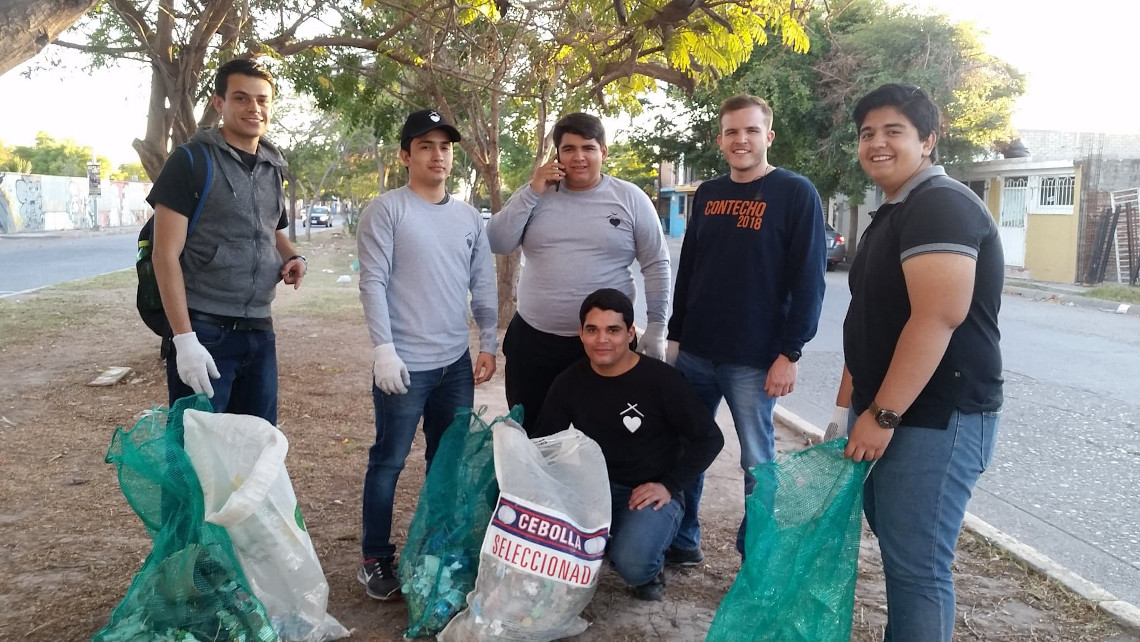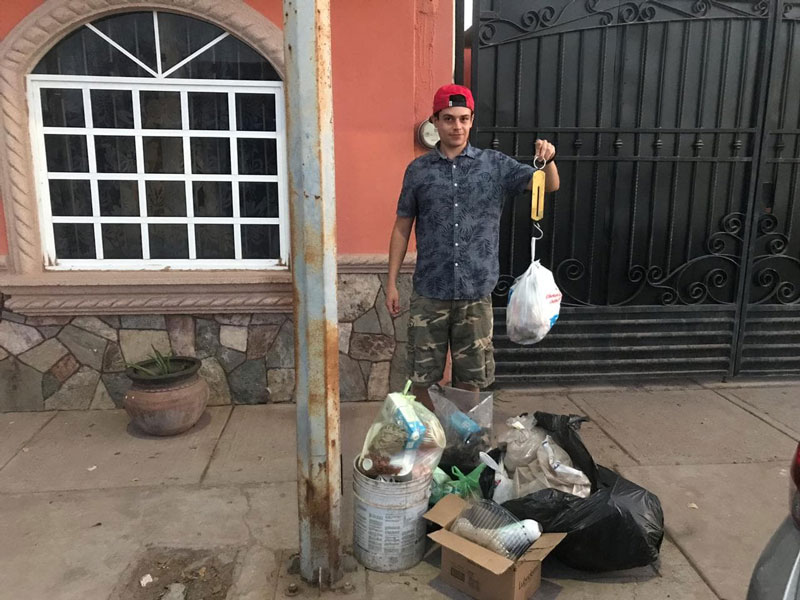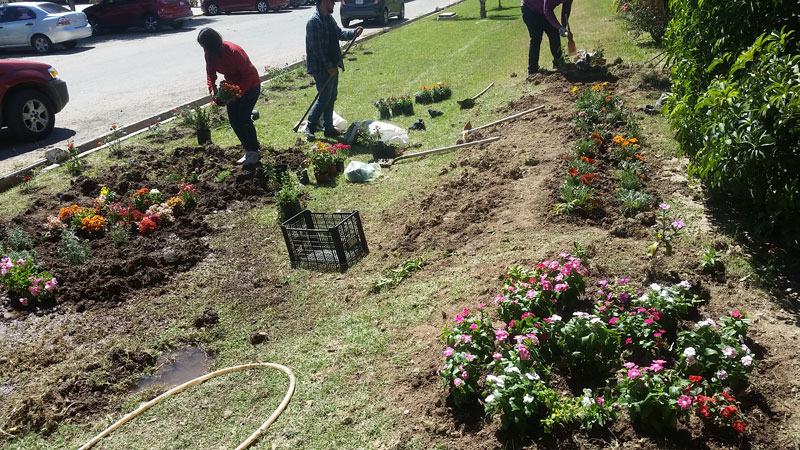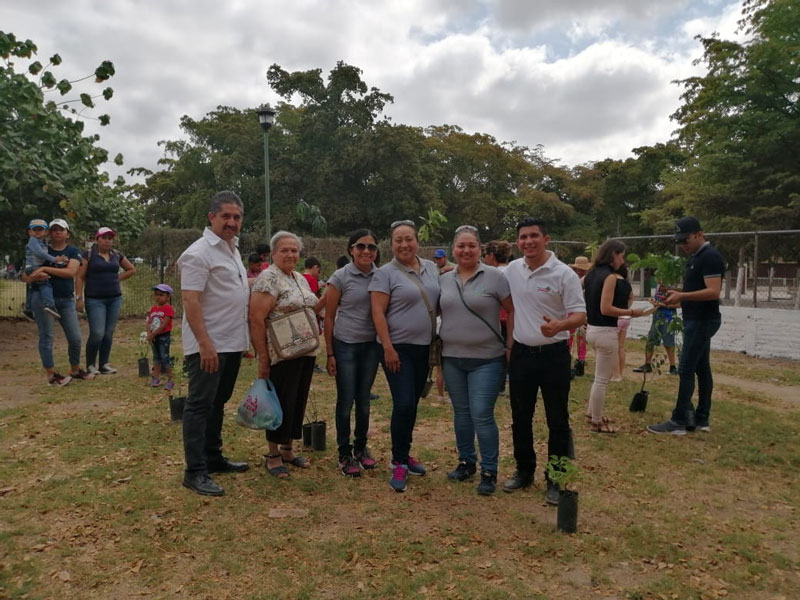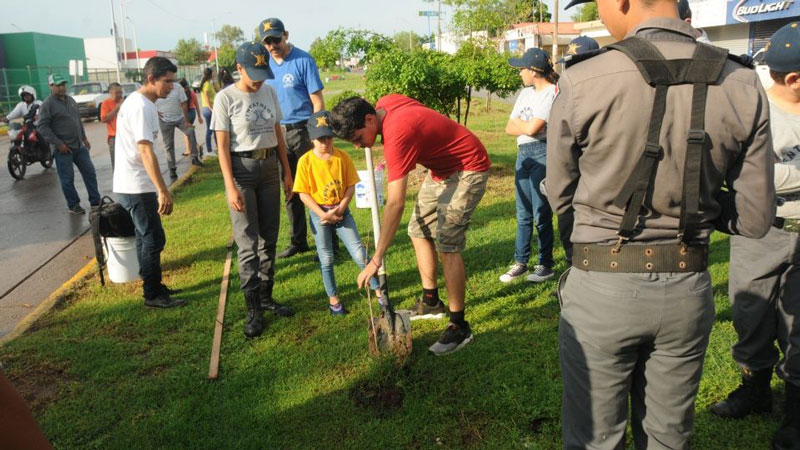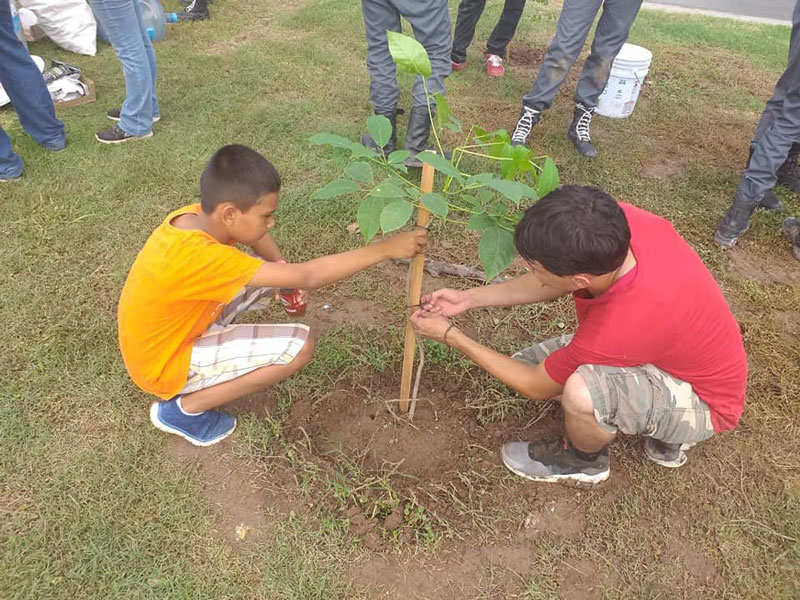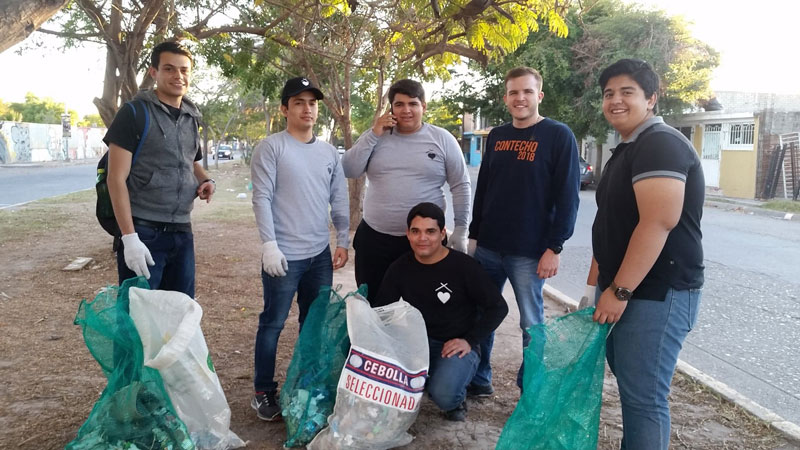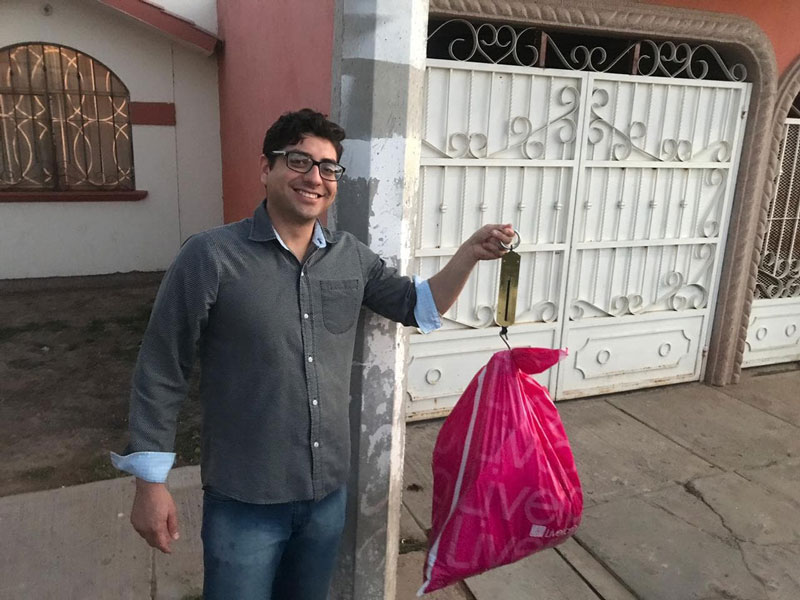As the year of 2019 witnessed millennials across the globe use the power of social media, take to the streets and engage in vigorous activism for reasons not limited to any single cause, the world took notice and gained a new perspective on the inspirational and resourceful power of politically and socially informed young people. In an age of social consciousness where youth live in, grow amidst and draw from socially and politically charged environments, the social involvement of young people that goes beyond self-interest has become the new normal.
From leading grassroots initiatives to driving policy action, young people are involved in meaningful action. Countless individuals across the world are doing remarkable work as they engage in many social initiatives, whilst balancing the responsibilities of education, work and personal life. For a closer perspective, this story takes one from the millions of examples of youth driving grassroots climate action in the world, to present how young people work in their respective spheres for positive social action. The story of Fernando Castro Bojorquez and Saul Ernesto Gerardo López leading their climate group Fersaamb, reflects the admirable nature of ordinary young people in their quest for social purpose.
Environmental Engineering and the inception of Fersaamb
Specializing in Environmental Engineering from the Universidad Autonoma de Occidente (UAdeO) in Los Mochis, both Fernando and Saul have been cultivating their expertise towards understanding environmental politics, and diagnosing and analyzing environmental problems in communities using a lens from different fields of science. Having understood that the principal impacts of climate change cause major damage in their country, state, community and the neighborhood, the two individuals discovered the need to develop positive initiatives to create a better world. The key to achieving that was to work together by joining hands with friends. With this precedent, Fernando and Saul founded a youth-led environmental group during their time in the university, and joining the prefixes of their names together, called it, Fersaamb with ‘amb’ also signifying the Spanish word ‘ambiente’ meaning ‘environment’.
Fersaamb was set in motion as the group endeavored to learn new vocabulary, techniques and methods in order to build their capacity as environmental engineers by attending various conferences, workshops, and helping professionals working in the field of environment under their guidance. It was during this phase of self-initiated capacity building that they came across POP Senior Mentor, Dr. Ash Pachauri and POP Honorary Distinguished Mentor, Dr. Norma Patricia Muñoz, in a conference on environmental development and climate change. Fernando and Saul connected with the POP Movement as Dr. Ash Pachauri opened many doors of possibilities that they could explore for engagement as Environmental Engineers.
Commencing the team-led ‘environmental service’
With Dr. Ash Pachauri’s motivation and support towards building an impactful movement, Fersaamb initiated its work in the neighborhood, calling it ‘environmental service’. For over a year now, this small group of friends and acquaintances has been working in the local neighborhoods with help from the local government, non-governmental organizations and voluntary associations. They are welcomed and enthusiastically received by various communities as they conduct environmental investigations, and attempt to implement techniques and methods that they have studied in their course work, further aiming to inform and teach the public about important lessons from Environmental Engineering.
Moving forward with Smart Neighborhood Program
Civil society protection against the risks and threats of environmental degradation has been the principal objective of Fersaamb as they work towards providing environmental services in the neighborhood. “People accept services that cover their civil security and health, that give them information. We started studying civil protection law, civil protection rules, local, national and international laws and normativity, and shared them with people. They began to feel more secure and better”, says Fernando as he describes the plan of having civil community programs by integrating the neighborhood in activities of civil protection. Targeting around 300 to 400 people in the neighborhood, Fernando and team strive to implement the Smart Neighborhood Program which is based on several studies that have been done in countries like the United States, China, Korea and parts of Europe. The Smart Neighborhood Program is one of the civil protection plans of the state of Sinaloa and part of the Municipal Urban Development plan. It works in collaboration with civil society associations and socially responsible companies, and is implemented by transmitting knowledge on global framework agreements including treaties and international agreements, as well as national legal regulations and instruments, official Mexican standards, laws, and local, municipal and state pacts.
The team of students from Universidad Autonoma Occidente seek to establish this Smart Neighborhood Program in the Santa Cecilia Fractionation community, in order to promote the achievement of the 17 Sustainable Development Goals (SDGs) proposed by the United Nations as part of the 2030 Agenda for Sustainable Development. Through this program, they intend to focus specifically on SDG 11 and SDG 13 which is about making cities and communities inclusive, safe, resilient and sustainable (SDG -11), and adopting urgent measures to combat climate change and its effects (SDG 13). The team works with Environmental Engineers available in the community and uses their expertise to promote sustainable development in Santa Cecilia.
Undertaking urban waste management
One of their initial initiatives revolved around dealing with the locally pertinent issue of urban waste. The team conducted a study on the generation of plastic and organic waste in the community and planned to implement measures like composting, recycling for reuse, up-cycling as art etc. They first educated themselves on the right techniques and methods required to deal with the issue and shared the knowledge with the neighborhood. The team works with the neighborhood on making compost, conducts local clean-up drives and counsels residents on making environment-friendly decisions regarding composting, gardening and domestic lifestyles in general. With the help of people in the neighborhood, Fersaamb aims to develop an urban orchard that produces organic food, and the team is currently conducting experiments with vegetable plants and other varieties for the urban orchard communities. With the project being stalled due to certain administrative difficulties, Fernando says the team awaits human and economic capital, and other necessary tools from the government to proceed with actualizing this project.
Annual hurricanes and rains that makes the state prone to flooding, cause discarded electronic waste to be washed away into lakes and oceans posing a threat to the environment and also risking the security of the civilians. Fernando talks of the electronic waste campaign being promoted by the local government where the youth group helps the collection and transportation of e-waste to another city where separation and recycling happens, with the micro waste separated into plastic, ceramic and crystal compounds, and becoming primary matters for reuse. This is one example of the many environmental services they provide in the neighborhood as part of civil society protection.
Creating urban forests and community engagement
Coordinating with a socially responsible company named “Empatiza Conmigo”, along with the local government and the Universidad Autonoma de Occidente, the team began a massive reforestation drive in the city as a measure of adaptation to climate change by planting around 40 trees donated by the city council on September 8, 2019. The species of regional trees included Yellow Tabachines, Monte Tabachines, Dwarf Tabachines, Amapas and Poplars. As the area has the propensity to be dry and desert-like, trees planted during the time of water availability will help store water and prevent drought conditions.
Fernando and Saul’s engagement with communities in the neighborhood begins with door-to-door interactions where consensus is built on the need to operationalize environmental consciousness in the growing pace of urban development. They pass on the knowledge that they have acquired to the open-minded residents, raise awareness, heighten their sense of environmental consciousness, and simultaneously coordinate with the local administration on providing the kind of environmental service that is essential to a neighborhood. With their targeted communities consisting of working-class population, Fernando relates that people, in their search for better opportunities and a better quality of life, are receptive to the cause of making development more ecological and sustainable.
Unavoidable realities of the government
Fernando’s observation of the government’s inability to effectively engage in civil protection duties brings out the impactful role they play in contributing to many environmental problems that can be avoided. For example, with the local administration failing to control and regulate the flow and quality of water during the season of excess, they cause the escalation of water shortage during drought, making water and food more expensive. Similarly, the urban waste administration’s failure to perform the required sanitation measures regularly, endangers public health and safety. Fernando attributes this shortcomings of the government to the lack of sufficient human capital and other administrative barriers. He describes how sanitation workers aren’t treated well and are required to work with a poor salary. As an environmental group, Fernando admits that his team has a better advantage, as they possess the capacity to conduct investigations and analysis using acquired scientific tools and methods in order to determine the cause of any problem, and then attempt to implement ways to deal with it.
Support from Universidad Autonoma de Occidente
Aside from being a major cause for the emergence of the youth environmental group Fersaamb, the Universidad Autonoma de Occidente has played a crucial role in developing the capacity of the students of Environmental Engineering and expanding their realm of social engagement. From sharing their laboratories and suggesting books and scientific articles, to guiding ground-level investigations, the teachers have been a strong pillar of support in this journey. Additionally, the team has been aided in their professional growth through engagement with Physicists, Chemists and professionals of environmental science.
The POP Movement and its tireless enthusiasm
Fersaamb receives regular mentorship and motivation from The POP Movement. Fernando remarks that the POP Family enables the team to be connected with environmental enthusiasts across the globe and become part of a larger movement. Their participation in the POP Festival presenting “Intelligent neighborhoods in Los Mochis, Sinaloa” received great acclaim as they, along with other POP teams used the platform to connect with and inspire one another. Through the POP Movement, both Fernando and Saul received the opportunity to participate at the 17th World Summit of Nobel Peace Laureates, in Mérida, Mexico in September 2019 representing the POP Movement. This high-level event was a unique opportunity for them to connect with great personalities, be exposed to diverse cultures, and draw learnings and inspiration from the experiences and perceptions of activists and pioneers from different fields. The summit was just another platform that helped channel their energies for sustainable action to Protect Out Planet.
Some of the regular activities of the team led by Fernando and Saul include re-collection of electronic, plastic and organic waste, recycling, tree plantation, making composts, etc. Ever investigating new ways of engagement through environmental services, the group plans to implement projects with new logical systems that educates, capacitates and employs people. In future, Fersaamb aims to adopt problems faced in the communities and systematically attend to them by coordinating with professionals, local governments, universities and civil associations. The team strongly believes that meeting the environmental objectives that it has set for itself will require following their core principle of working together.
Journeying on
Saul and Fernando are at a crucial point in their youth where they are looking to equip themselves professionally, while strengthening their environmental group and build it into an officially registered organization. They face all the challenges of a young person as they manage part-time jobs to support themselves and their environmental work, overcome logistical difficulties like relying on public transport for their field-oriented work and balance other priorities. Nevertheless, they move forward with the same resolve of creating a movement for the environment by joining hands with people from different social strata in working together for sustainable development. Fernando dreams to expand the movement to other cities and intends to deepen the consciousness about the environment among people beginning from an early age. Fersaamb is merely a genesis for him and Saul, as they envision greater possibilities in the field of environmental security and civil protection.





